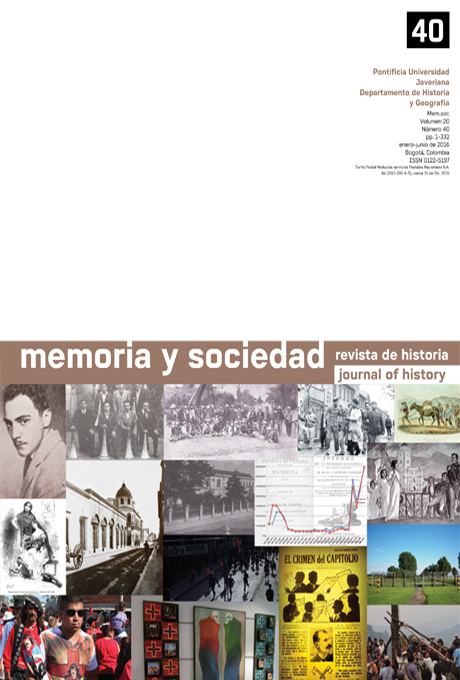Abstract
The purpose of this research was to analyze the influence of the thought of spaniard phy- siocrats in the creation, organization, and set in motion of Colombian public finances in the first half of the 19th Century. Thus, we will tackle the proposals of Jovellanos and Ca- pomanes, presented to improve the econo- mic growth of spain, which came to America through the Bourbon Reforms and remained in force during the first years of the Republic, despite the independence revolutions. Addi- tionally, we will analyze the theoretical ap- proach to Colombian public finance and their break from physiocracy based on the memo- ries of the national Public Treasury, during the 1822 – 1850 period.The journal Memoria y Sociedad is registered under a Creative Commons Attribution 4.0 International Public License. Thus, this work may be reproduced, distributed, and publicly shared in digital format, as long as the names of the authors and Pontificia Universidad Javeriana are acknowledged. Others are allowed to quote, adapt, transform, auto-archive, republish, and create based on this material, for any purpose (even commercial ones), provided the authorship is duly acknowledged, a link to the original work is provided, and it is specified if changes have been made. Pontificia Universidad Javeriana does not hold the rights of published works and the authors are solely responsible for the contents of their works; they keep the moral, intellectual, privacy, and publicity rights.
Approving the intervention of the work (review, copy-editing, translation, layout) and the following outreach, are granted through an use license and not through an assignment of rights. This means the journal and Pontificia Universidad Javeriana cannot be held responsible for any ethical malpractice by the authors. As a consequence of the protection granted by the use license, the journal is not required to publish recantations or modify information already published, unless the errata stems from the editorial management process. Publishing contents in this journal does not generate royalties for contributors.

